4 ways to spark more financing for sustainable chemistry
GreenBiz
JUNE 27, 2023
The transition to greener chemicals offers holistic solutions to plastics pollution, climate change and biodiversity, but we need more investments to scale innovation.
This site uses cookies to improve your experience. By viewing our content, you are accepting the use of cookies. To help us insure we adhere to various privacy regulations, please select your country/region of residence. If you do not select a country we will assume you are from the United States. View our privacy policy and terms of use.

GreenBiz
JUNE 27, 2023
The transition to greener chemicals offers holistic solutions to plastics pollution, climate change and biodiversity, but we need more investments to scale innovation.
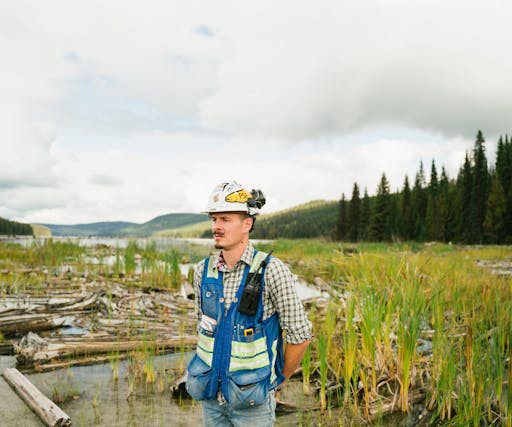
The Environmental Blog
MAY 29, 2024
Combining principles from various scientific disciplines, it addresses some of the most pressing challenges facing our planet, such as pollution, waste management, and climate change. Environmental engineers work on designing and implementing systems that reduce pollution, manage waste, and protect natural resources.
This site is protected by reCAPTCHA and the Google Privacy Policy and Terms of Service apply.

Business Green
AUGUST 15, 2022
HSBC Asset Management has launched an exchange-traded fund (ETF) designed to invest in companies with strong biodiversity credentials, aimed at both wholesale and institutional investors, it announced last week. HSBC AM is not the first major financial firm to explore biodiversity-screened investment vehicles.

The City Fix
JUNE 8, 2023
“Plastic kills, and the damages of plastic pollution have no borders. We cannot beat plastic pollution if we don’t tackle climate change, environmental loss and food crises at the same time.” That was the powerful message Paris Mayor Anne Hidalgo.

Inhabitat - Innovation
JUNE 10, 2021
The UN Decade on Ecosystem Restoration aims to combat three crises: biodiversity loss, climate change and mounting pollution.

Inhabitat - Innovation
JANUARY 27, 2023
Climate change is accelerating at an unprecedented rate. With it comes threats like global warming, pollution, natural disasters, degraded landscapes and threats to biodiversity, to name a few.

Envirotec Magazine
APRIL 25, 2022
Climate change and intensive agricultural land use have already been responsible for a 49% reduction in the number of insects in the most impacted parts of the world, according to a new study by UCL researchers. Tropical areas saw the biggest declines in insect biodiversity linked to land use and climate change.

The Environmental Blog
JUNE 23, 2023
Vehicle pollutants refer to the harmful substances emitted by automobiles and other vehicles during their operation. These pollutants contribute significantly to environmental degradation and pose serious health risks to both humans and ecosystems.
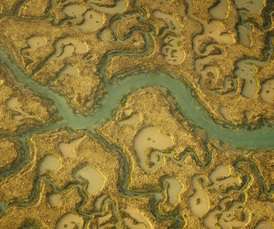
Business Green
JULY 26, 2021
Potential of mangoves and seagrass to capture CO2 and support biodiversity to be explored as six marine and coastal projects secure backing from UK Research and Innovation. Research projects aiming to boost biodiversity, capture greenhouse gas emissions and protect coastal environments are among those receiving a share of £9.2m

GreenBiz
MARCH 5, 2021
It is more urgent than ever to shift from linear, use-it-up-and-throw-it-away models to a circular economy: where waste and pollution are designed out, products and materials are kept in use for longer, and natural systems can regenerate. billion tons) and play a crucial role in averting the dangerous impacts of climate change.
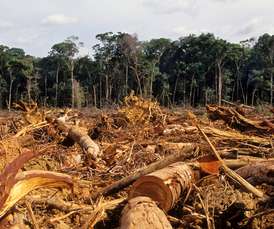
Business Green
JUNE 16, 2020
Would that the same could be said of global biodiversity - or the living natural world to give it its more evocative name and rid it of the emotional distancing that accompanies the dry scientific terminology. Efforts to tackle biodiversity loss enjoy no such luck. The yields are seen to be higher if the field is soaked in pesticide.

The City Fix
MARCH 24, 2023
While cities are hubs of innovation and opportunity, the increasing pace of urbanization also exacerbates inequality, stresses infrastructure, and fuels climate change, air pollution and other environmental problems. About two-thirds of the world’s population will live in cities by 2050.

Business Green
NOVEMBER 22, 2021
Owner of Waitrose and John Lewis announces plans to support innovative projects that challenge wasteful 'take, make, dispose' model. They will be assessed by an expert independent grant panel, which will consist of circular economy experts, grant making and innovation authorities, and senior representatives from the John Lewis Partnership. ?"Climate

Planet Pulse
OCTOBER 12, 2021
Methane is a major contributor to climate change, and if we can’t measure it, we can’t manage it. Bloomberg, UN Secretary General’s Special Envoy for Climate Ambition and Solutions and Founder of Bloomberg LP and Bloomberg Philanthropies. Planet and NASA JPL are building the first two satellites, which are set to launch in 2023.

The Environmental Blog
FEBRUARY 2, 2024
As the world struggles to combat climate change, the need for a sustainable economy is more urgent than ever. It’s leading to increased greenhouse gas emissions which are affecting our ecosystems and contributing to climate change. Techniques, such as organic farming and biodiversity can make all the difference.

GreenBiz
FEBRUARY 12, 2021
It relies on the extraction and eventual disposal of finite materials and — to satisfy an ever-growing demand for resources — encroachment into natural ecosystems, resulting in greenhouse gas emissions and staggering biodiversity loss. The action plan calls for improved metrics to monitor the progress towards circularity.

Business Green
NOVEMBER 9, 2021
As Science, Innovation and Gender Day gets underway at the COP26 Climate Summit in Glasgow, UK announces raft of initiatives designed to tackle gender inequality around the world. I urge more countries to make commitments to implement the UNFCCC Gender Action Plan and deliver the goals of the Feminist Action for Climate Justice.".

DeSmogBlog
NOVEMBER 27, 2021
After decades of sowing doubt about climate change and its causes, the fossil fuel industry is now shifting to a new strategy: presenting itself as the source of solutions. Another shows that spending the same amount of money on clean energy to replace fossil fuels is more effective at reducing emissions, air pollution and other costs.
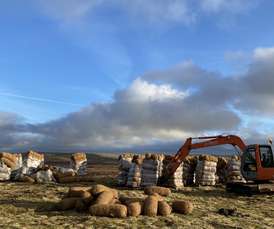
Business Green
JULY 5, 2022
Charity coalition publishes its first climate risk assessment, examining the impact of climate change across its 400 square mile estate. Charity coalition The Wildlife Trusts has today published a new report which sets out some of the radical steps required to help UK nature adapt to escalating climate impacts.

Business Green
FEBRUARY 14, 2022
UKRI offers funding to four major scientific projects across UK exploring net zero cities, agricultural resilience, and biodiversity loss.

GreenBiz
JANUARY 25, 2021
Despite the reductions in air travel and the global economic slowdown caused by the pandemic, climate change sadly has not slowed down this past year. degrees C cap on average warming that governments pledged to aim for when they signed the 2015 Paris Climate Agreement to avoid dangerous climate change.

GreenBiz
OCTOBER 6, 2020
Now, with climate change, come scorching hot temperatures during the summer months which bring additional challenges to healthcare systems that already operate under great pressure due to the pandemic. Climate Change. Let’s not make the same mistake with global warming. And temperatures will continue to rise. Pull Quote.

Envirotec Magazine
FEBRUARY 5, 2020
A new peer-to-peer platform is helping municipalities and water utilities find reliable innovative solutions to their infrastructure resilience challenges, according to the firm behind it, Isle Utilities. Biodiversity is also at risk along with public health and the psychological wellbeing of those affected by extreme weather events.

GreenBiz
JANUARY 25, 2021
No doubt the answer lies in a combination of investor pressure, technological innovation, consumption shifts, governmental pressure, new circular business models that reward resource efficiency — and more than a little grit and determination. That’s changing. That is a defining question of the decade.

Envirotec Magazine
FEBRUARY 10, 2020
The Bill establishes a new “independent watchdog”, the Office for Environmental Protection (OEP), to fulfil this role, and it will seemingly hold the government to account on long-term, legally-binding targets in relation to biodiversity, air quality, water and waste management as well as its commitment to reach net zero emissions by 2050.

Business Green
MARCH 29, 2023
Pensions firm's new Global Environmental Solutions fund to invest in companies tackling climate change, biodiversity loss, food insecurity and pollution Scottish Widows has launched four new funds which aim to direct a total of £1.4bn of investment into sustainable assets.

GreenTech Gazette
AUGUST 21, 2020
But how much of this is investment in green innovation, and how much of it is marketing bluster. While Tesla continue to be the gold standard for sustainable motoring, Honda are showing remarkable commitment to green innovation at present. The post Green Innovation or Greenwashing? EcoLogic Studio. McDonald’s .

Front And Centered
DECEMBER 4, 2020
Washington state must cut greenhouse gas emissions from energy use in half within the next ten years if we have any chance in meeting long term state requirements to nearly eliminate pollution that causes climate change by 2050. Cap and Trade: A False Promise.

DeSmogBlog
JUNE 14, 2023
The biggest risks to food security stem from climate change and the loss of biodiversity and ecosystem services,” said the letter, which was sent to all Members of the European Parliament. “We Furthermore the effect on climate change is minimal.” It is also the leading cause of biodiversity loss in the world.

Envirotec Magazine
APRIL 5, 2023
Furthermore, agriculture, forestry, and land use change are responsible for about 25% of the greenhouse gas emissions that are driving global warming, and agriculture uses about 70% of fresh water supplies. These challenges are of course exacerbated by climate change. Again, accurate monitoring and control is vital.

Low Impact
NOVEMBER 21, 2021
The Systems Change Alliance share our view at Lowimpact.org that the climate change problem can’t be solved within the current economic system, which requires and generates perpetual growth and wealth concentration. The climate crisis is not a crisis to be solved with technological fixes enabled by market sales tactics.

Business Green
JANUARY 24, 2022
The UK is the latest country whose government environmental groups have sued for failing to take sufficient action on climate change. Offsets shouldn't be used to allow pollution to continue unabated. Climate action can have multiple additional benefits, for biodiversity, public health, and food security.

Smart Energy International
APRIL 5, 2022
The UN IPCC has released its latest climate change mitigation report, which provides an updated global assessment of mitigation progress and pledges. One of its core findings is that major transitions in the energy industry will be key to mitigating the climate crisis. Climate change policy. We are at a crossroads.

Envirotec Magazine
MAY 16, 2023
Farmers could soon be reimbursed for creating water storage ponds or water “batteries” as part of an innovative drought-prevention project that has received funding (on 16 May) from Ofwat’s Innovation Fund.

DeSmogBlog
SEPTEMBER 21, 2023
Major food and farming corporations will be seeking to steer conversations in Dubai via an influential coalition: the AIM for Climate (Aim4C) initiative. In recent years, the biggest agricultural polluters and food corporations have embraced this term, which refers to a wide range of farming techniques that improve the environment.

Latham's Clean Energy Law Report
MARCH 15, 2024
Regulated Entities Under the Guidelines, the top 180 companies listed on the Shanghai Stock Exchange and the top 50 companies on its Science and Technology Innovation Board of the Shanghai Stock Exchange must publish SDRs annually, within four months of the end of their fiscal year.

Business Green
NOVEMBER 18, 2020
Companies are chasing profits from product innovations such as plant-based meat but failing to invest in supply chain resilience, study finds. It found food companies are responding to growing consumer demand for healthy and sustainable products primarily through product innovation, such as alternative meat made from plant proteins.

Envirotec Magazine
DECEMBER 15, 2021
Microfibres are the type of microplastic that are most frequently eaten by marine species(2) and therefore of concern for ocean biodiversity. The ocean plays a critically important role in climate regulation. The Ocean Race Europe took place in May and June 2021, starting in Lorient in North West France and finishing in Genova, Italy.

Business Green
NOVEMBER 18, 2020
Companies are chasing profits from product innovations such as plant-based meat but failing to invest in supply chain resilience, study finds. It found food companies are responding to growing consumer demand for healthy and sustainable products primarily through product innovation, such as alternative meat made from plant proteins.

Business Green
JUNE 28, 2021
The project, which is being led by a new non-profit called Foundation Earth and funded through the EU Commission's food innovation arm EIT Food, aims to explore how clearly-communicated "eco-scores" on products can drive more sustainable purchasing habits and accelerate environmentally-friendly innovation among food producers.

Envirotec Magazine
DECEMBER 5, 2022
The publication came with a stark warning that while the UK is making some progress in tackling key environmental issues, a lot more collaboration and action is needed from businesses to achieve the level of change required, and to keep climate goals within reach.

Renewable Energy World
NOVEMBER 18, 2021
The EIB support will enable INBRE to restore the water management infrastructure of the Arno River to improve the region’s climate resilience, including via the reforestation of adjacent areas. The financing will aim to reduce the environmental impact of pre-existing architectural elements and preserve local biodiversity.
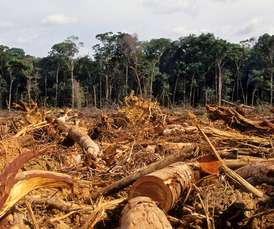
Business Green
AUGUST 26, 2020
Current regulation and risk disclosure efforts are insufficient for tackling the varying and complex risks posed by nature loss and climate change, UCL research argues. Whilst the worst impacts of climate change are foreseen in the coming decades, I would argue that for some aspects of nature loss, they're already here.".

GreenBiz
OCTOBER 26, 2020
Tackling these multiple challenges and threats requires coordinated action from the public sector, private sector, NGOs, civil society, innovators and actors throughout the food value chain. square feet of land and the assuaging of animal species distinction, water pollution and habitat destruction. Looking back with regret.
Expert insights. Personalized for you.
We have resent the email to
Are you sure you want to cancel your subscriptions?


Let's personalize your content